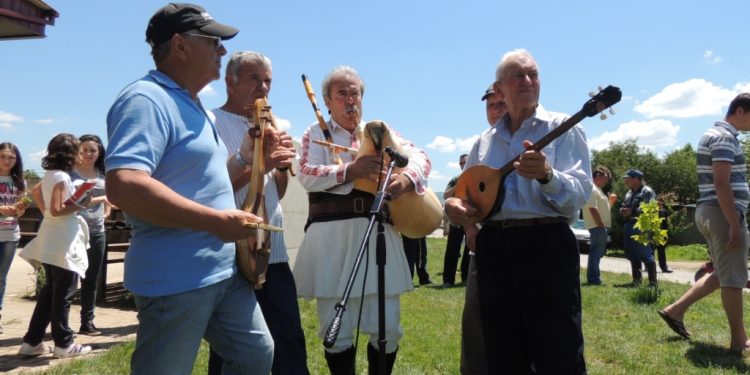Traveling is not only about visiting new places but also about experiencing different ways of life. Every destination has its own set of customs, values, and cultural norms that make it unique. Respecting these traditions is key to being a responsible traveler. By embracing cultural etiquette, you can foster meaningful connections with locals, deepen your understanding of a new culture, and contribute positively to the places you visit. However, cultural differences can sometimes be tricky to navigate, especially if you’re not familiar with the norms. This guide provides practical tips on how to respect local traditions and customs while traveling, allowing you to explore the world with sensitivity and respect.
Do Your Research Before You Go
The first step in practicing cultural etiquette is doing your homework before arriving at your destination. Understanding a place’s customs, history, and cultural values will help you navigate your interactions respectfully. Research the social norms and traditions of the country or region you’re visiting. Are there any particular gestures that are considered offensive? How do people greet one another? Are there specific rules for dressing or eating in public?
Books, travel blogs, documentaries, and even YouTube videos can provide valuable insights into the culture of your destination. Websites like Culture Trip or the official tourism board pages are also useful for understanding local dos and don’ts. If you know people who have visited the destination or locals who live there, ask them about customs that are important to observe. This preparation not only helps you avoid inadvertently offending someone but also shows your hosts that you respect their culture.
Dress Appropriately for the Culture
One of the most visible aspects of cultural etiquette is the way you dress. In many cultures, clothing is directly tied to notions of respect, modesty, and propriety. Researching appropriate attire for your destination is important, particularly if you plan to visit religious sites, rural communities, or traditional ceremonies.
For example, in many predominantly Muslim countries, it’s considered respectful to dress modestly, covering shoulders and knees. In temples across Southeast Asia, you may be required to cover your arms and legs before entering. Carrying a lightweight scarf or shawl can be handy for covering up when needed.
It’s also important to note that even within a country, norms may vary between urban and rural areas. While cities may be more relaxed about dress codes, rural communities may have more conservative expectations. Being mindful of these differences and dressing appropriately is a simple yet powerful way to show respect.
Mind Your Body Language and Gestures
Body language and gestures can have different meanings across cultures. What might be a friendly gesture in your home country could be considered rude or inappropriate somewhere else. For instance, in many parts of Asia, touching someone’s head is disrespectful, as the head is considered sacred. In some cultures, pointing with your finger is impolite, while in others, showing the soles of your feet is seen as offensive.
To avoid misunderstandings, try to learn about culturally appropriate gestures before your trip. If you’re unsure, observe how locals interact with each other and follow their lead. Simple actions like using your right hand for eating or giving objects (as the left hand is considered unclean in some cultures) can make a big difference in showing respect for local customs.
Facial expressions and personal space also vary across cultures. In some countries, maintaining eye contact is seen as a sign of confidence, while in others, it may be interpreted as confrontational or disrespectful. Similarly, physical contact, such as hugging or touching, might be common in some cultures but unwelcome in others. Paying attention to these nuances can help you navigate interactions more smoothly.
Learn Basic Local Phrases
Learning a few basic phrases in the local language is a small effort that goes a long way in showing respect. Greetings, thank you, please, and sorry are some of the most important words to learn. Even if your pronunciation isn’t perfect, locals will often appreciate your effort to communicate in their language.
Language barriers can sometimes create a disconnect, but using key phrases like “hello,” “thank you,” or “excuse me” can help bridge that gap and make your interactions more personable. Additionally, using the local language shows that you value the culture and are willing to make an effort to connect.
If learning the language seems daunting, consider using translation apps like Google Translate to help with basic communication. Just remember that while technology can assist, nothing replaces the warmth and effort of trying to speak directly to someone in their native tongue.
Respect Religious and Sacred Sites
Many cultural attractions are religious or sacred in nature, and respecting these spaces is crucial for responsible travel. When visiting temples, churches, mosques, or other places of worship, dress appropriately and follow any rules regarding behavior, photography, or restricted areas.
In many temples, you may be required to remove your shoes before entering. Some sites may also have specific rules about where visitors can and cannot go, or whether photographs are allowed. Pay attention to signs, and when in doubt, ask a guide or a local for clarification.
Be mindful of the atmosphere in these spaces. Keep your voice low, avoid disruptive behavior, and show respect to those who are there to worship. In some places, it’s considered disrespectful to turn your back to religious statues or to touch sacred objects without permission. Observing how locals behave in these settings can be a helpful guide for your own actions.
Observe Dining Etiquette
Food is an integral part of culture, and sharing a meal is often a way to connect with locals. However, dining etiquette varies significantly around the world, and understanding these customs can enhance your experience and prevent awkward situations.
In some cultures, it’s customary to wait for the host to start eating before you begin. In others, leaving food on your plate may be considered wasteful, while in some places, it’s a sign that you’re full and satisfied. In India and parts of the Middle East, eating with your right hand is customary, as the left hand is seen as unclean. In Japan, making slurping sounds while eating noodles is a sign that you’re enjoying your meal.
If you’re invited to a local’s home, bring a small gift as a token of appreciation, but be mindful of what you give—some items may have negative connotations. For example, giving clocks or sharp objects in China is considered bad luck. When in doubt, ask for advice on what would be an appropriate gift.
Be Mindful of Photography
Photography is a wonderful way to capture memories, but it’s important to be respectful when taking photos of people, especially in cultural or religious settings. In some cultures, taking someone’s photo without permission is considered intrusive or even offensive. Always ask for permission before photographing people, and respect their wishes if they decline.
In some places, there may also be restrictions on photographing certain sites, particularly those with religious or cultural significance. Look for signs indicating photography rules, and if you’re unsure, ask a guide or a local. When photographing children, always seek permission from their parents or guardians.
Respect Local Customs and Social Norms
Social norms can vary greatly from one culture to another. In some countries, bargaining at markets is expected, while in others, prices are fixed and haggling is considered rude. Understanding these customs will help you interact with locals respectfully and avoid misunderstandings.
If you’re using public transportation, observe how locals behave. In Japan, for example, it’s considered impolite to speak loudly or take phone calls on trains. In many parts of Europe, it’s customary to greet shopkeepers when entering and leaving a store. These small gestures show that you’re aware of and willing to adapt to local customs.
Give Back to the Community
Traveling responsibly also means giving back to the communities you visit. Support local artisans by buying handmade products rather than mass-produced souvenirs. Eat at family-owned restaurants, stay in locally-run accommodations, and hire local guides. By doing so, you contribute to the local economy and help preserve cultural traditions.
Volunteering your time or donating to local causes can also be a meaningful way to give back. However, be cautious of voluntourism programs that may not benefit the community as much as they claim. Always research organizations thoroughly to ensure your contributions are genuinely helping.
Stay Open and Adaptable
Cultural etiquette isn’t about rigidly following a set of rules—it’s about showing respect, staying open, and being willing to adapt to the customs of the places you visit. Mistakes can happen, but what matters most is your attitude. If you accidentally offend someone, apologize sincerely and learn from the experience.
Embracing the differences in customs and traditions is one of the most rewarding aspects of travel. By showing respect and genuine curiosity, you can build connections that transcend language and cultural barriers, creating experiences that are both memorable and transformative.















Discussion about this post